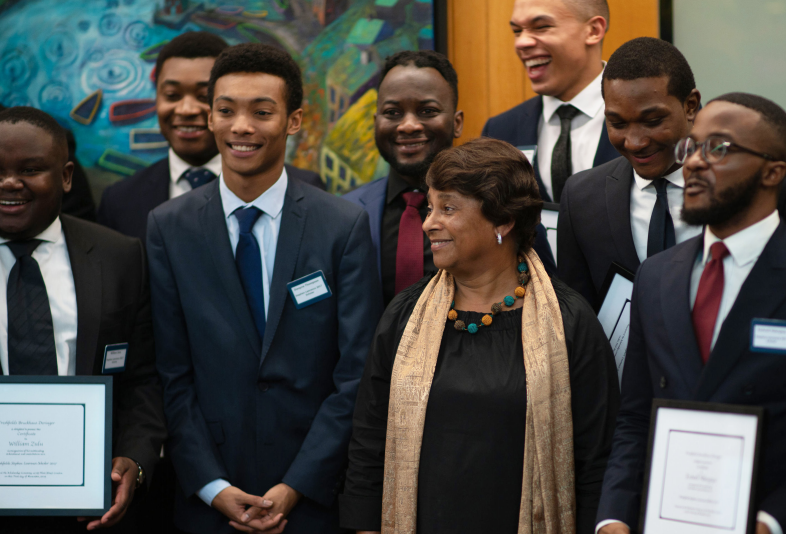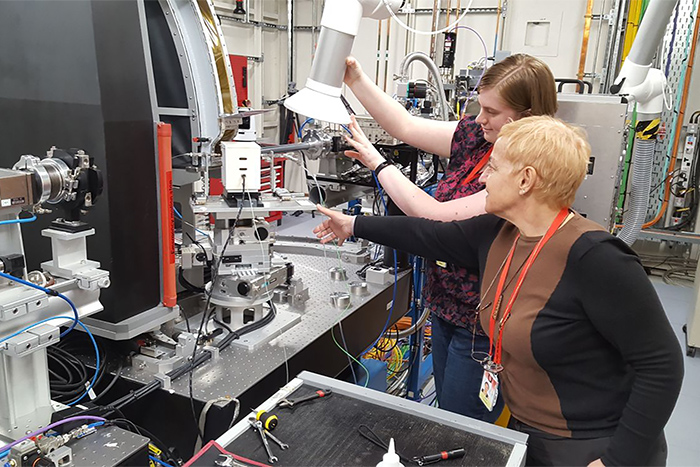Three projects from academic colleagues in the School of Physical Sciences (Division of Natural Sciences) have been awarded New Horizons Grants of £200,000 from the Engineering and Physical Sciences Research Council (EPSRC).
The four academics involved are celebrating global acknowledgement after being recognised as part of a ground-breaking new programme to support adventurous, high-risk research. The review process focused on the transformational potential of the research, and the three projects from our academics were amongst approximately 100 funded in the UK.
Dr. Emma Pugh, Lecturer in Physics, School of Physical Sciences, has been awarded an EPSRC New Horizons grant for the project “A New Window for the Control and Measurement of Quantum Systems”. The project aims to create a new type of experimental probe for magnetism in quantum matter which will enable us to simultaneously create and measure new quantum states.
The work is being undertaken in collaboration with Professor Crispin Barnes from the University of Cambridge. Our innovation will combine innovative optical techniques with high pressure methods at low temperatures producing a new measurement system to allow us to study magnetic behaviour in materials.
Dr Gunnar Möller, Royal Society University Research Fellow in SPS, won his grant to design New Platforms for Topological Superconductors, which could open up novel ways of designing quantum computers. The project will also involve Prof. Seyed A. Jafari from the Sharif University of Technology.
Dr Moller’s proposal aims to explore a new platform for creating topological superconducting states of matter. The new systems can also be regarded as analogues of gravitational fields, so could also be used to explore connections with astrophysical settings.
The third successful SPS project come from Dr. Gavin Mountjoy and fellow SPS academic Prof. Anna Corrias. The pair’s project on “Persistent Phosphor Glasses” is designed to create a new type of phosphorescent glass for optical applications.
Modern technology depends on mastery of materials, and functional glasses and glass-ceramics are used in a range of devices in the sectors of communications, healthcare, energy, and aerospace. The aim of the new project is to make fully dense and transparent materials which can be functionalised with a variety of oxide nanocrystals to overcome the following limitations in the manufacturing of such materials. This project will create an exciting new generation of functional materials through oxide nanocrystal doping of glasses.
Science Minister Amanda Solloway said: “It is critical we give the UK’s best researchers the resources to drive forward their revolutionary ideas so they can focus on identifying solutions to some of the world’s greatest challenges, such as climate change.
“This government funding will allow some of our brightest mathematicians and physicists to channel all their creative ingenuity into achieving potentially life-changing scientific breakthroughs – from mathematics informing how we save our rainforests to robotics that will help track cancer faster.”
New Horizons grants were evaluated without knowing the identities of the project leaders or their institutions which highlights the recognition given to the science behind the proposals, and demonstrates how the School is delivering world class research with a real-world impact.



